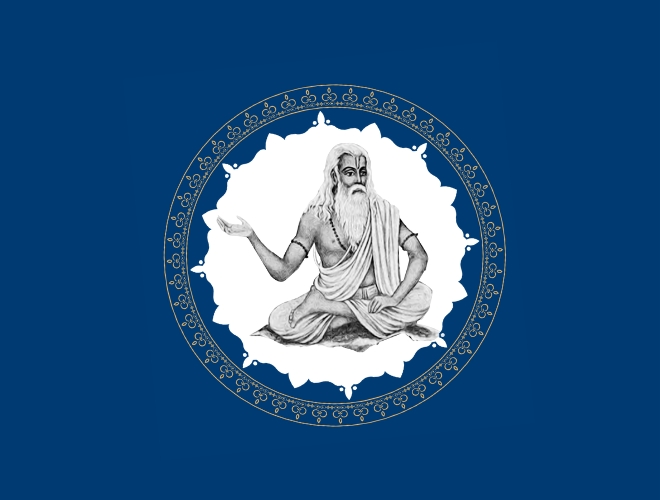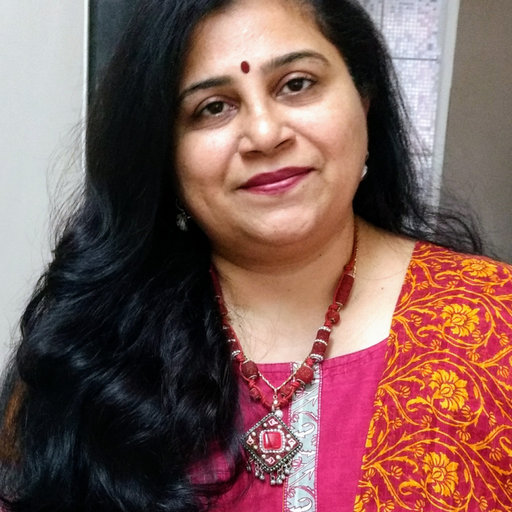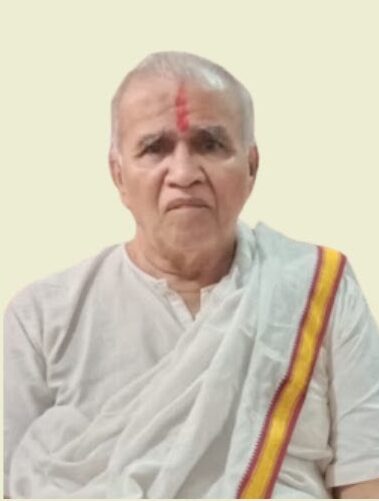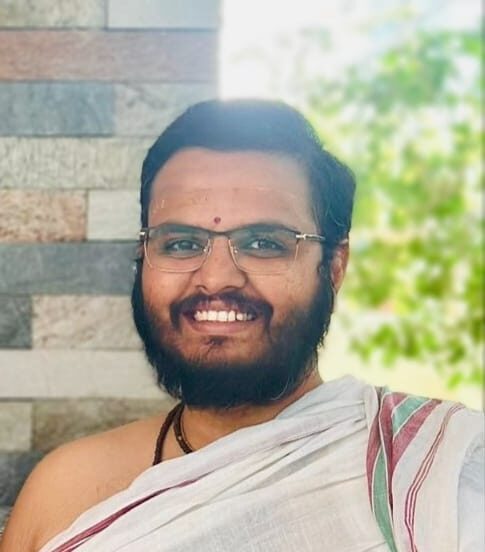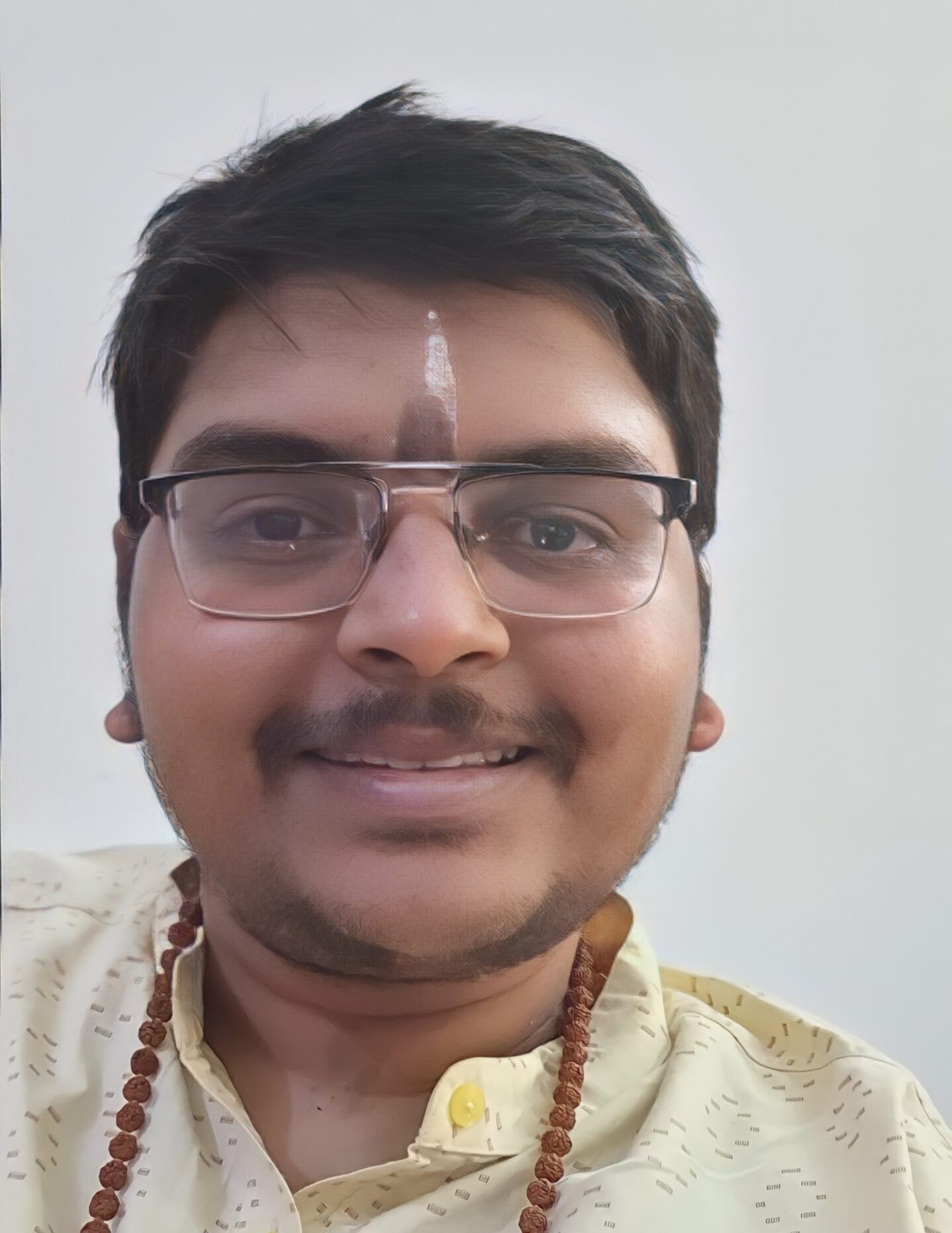Guru, the untranslatable : The word and concept of Guru holds a matchless significance in Indic culture and traditions. The word being borrowed into English shows its global significance, though as an English word it may not carry the same meaning, significance and the wide, deep and intricate scope as in various Indic cultural traditions. It is used in English as just a word to describe a great exponent of a skill or knowledge area. The word as used in Sanskrit and various Indian languages, is one of the untranslatables.
Parent, the Guru, Initiator and trainer : In the Vedic tradition, Guru is the one who initiates a Vedic person into Vedic learning, i.e., into the learning of the Vedas and Vaidika shaastras through a ritual process considered to be a second birth for the initiated learner s’ishya and hand holds and walks with the learner throughout the learning upto its successful completion.to become an independent practitioner of the Veda or shaastra. ‘Aachaarya’, ‘adhyaapaka’ and ‘upaadhyaaya’ are a few other words that are used in the context of the passer on of IKS, Indian knowledge Systems .In all the Indic traditional knowledge and skill systems outside this Veda and shaastra learning tradition too, the initiator and teacher/trainer holds a similar significance to the initiated learner throughout the learning process and beyond upto the point of making the learner an independent practitioner of the knowledge or skill system.It is usually the father or a fatherlike elderly member of a family who initiates the child and hand holds the child throughout the learning of the knowledge or skill system which is usually hereditarily acquired by the family. So , parents or parental family members being Guru is a widespread phenomenon in the traditional knowledge and skill systems in India.
Guru-s’ishya paramparaa, the tradition of learning continued through a lineage of gurus to sishyas and these s’ishyas again becoming gurus to their s’ishyas, through an intimate, affectionate , to the degree of a supernatural bond between the guru and s’ishya is a very important concept and process in the creation and sustenance of all IKS, Indian Knowledge Systems. This word Gurus’ishyaparamparaa is used by contemporary Indians as a label to describe a precolonial, premodern or traditional pedagogy of Bhaarat.Particularlyin the fields of medicine like Ayurveda, in the fields of folk and classical performing arts like music, dance and theatrical arts and in the sculptural and architectural arts like sthaapatya, the system of gurusishyaparamparaa is continuing as the most preferred system.
Gurukulam: The system of learning in a gurukulam , the residence of a guru or a hamlet of hermitages of various gurus, is what is seen throughout the narrations in the Vedic texts like Upanishads and the classical Sanskrit texts like Itihasas, puranas and kavyas. Gurus running these gurukulas are rishis, maharshis and brahmarshis. These rishi-gurus are tapasvis, i.e., those absorbed in intense and deep meditation, having deep aesthetic, meditative, experiential connection of different degrees with different truths of nature called devatas. These gurus are also called munis, engaged in a kind of ‘research’ into different aspects of truth. Brahmacharis meaning celibates, also called vidyaarthis, seekers of vidyaa i.e., knowable or knowledge are described to live a celibate and austere life in the hermitages located inside deep forests approaching and living with the gurus seeking knowledge through their own tapas guided by the gurus.There are historical documentations of gurukulams from several centuries in different parts of India, continuing vibrantly even today. The personalities, life styles and teaching and learning methods in the gurukulas are all viewed and followed as continuities from and replicas of their counterparts in the rishi gurukulas. Gurus in these gurukulams are seen and live as the replicas of the rishis and munis of these Vedic and classical texts. Before colonization of education in Bhaarat, it is these gurus who sustained millennia old pursuit and development of and innovations in different vidyaas in this civilization. Even today, it is these gurus who are preserving the vidyaas not to be affected by the colonial dangers.
Devaguru, Raakshasaguru: Puranas mention Brihaspati as the Guru of all Devataas or Suras. Interestingly Guru is the other name of Brihaspati. Guru and Brihaspati are the names of a graha (planet) that is a member of the nava graha , often translated as Jupiter in English. Nava graha, ‘nine planets’ system has Sukra also which is translated as Venus. Sukra, interestingly, occurs in Puranas as the guru of the Daityas or Asuras or Raakshasas. The name sukraachaarya is mentioned with great respect in Vedic textual sources, though he is looked at as the guru of Asuras , the negative, demonical supernatural entities in the Puranas.
Kulaguru and Raajaguru: The word kula refers to lineage. In itihaasas and puraanas we see certain Rishis like Vashishtha being the guru of lineages like the surya vamsha or ikshvaaku lineage of Sri Rama. Both in Itihaasas and historical sources we come across a role called Raaja guru which is viewed as modelled after Devaguru and Kula guru concepts of itihaasas and Puranas.
Aadhyaatmika Guru: The significance of Guru reaches an exponentially higher level and reaches its unparalleled zenith in the traditions of spiritual practice.Interestingly, it is this concept or aspect of guru that has the widest prevalence among people as it is prevalent in all the traditions, Yogic, Taantric, Bhakti , Vedantic , folk and vanavaasi (forest dweller’s) traditions of spiritual practice. In many of these traditions , Guru is held in such a greatly venerated position that he is equated with the ultimate entity that is the goal of the practice. In many Yogic, Taantric and Bhakti traditions, both classical and folk, the word Guru is used interchangeably for the words denoting the ultimately attainable supreme deity, state or entity in the respective traditions. That is, in these traditions, Guru is both the means and the goal. Even in the other spiritual traditions where such an identification does not exist, Guru is compared to the ultimately attainable supreme deity, state or entity in the respective traditions.In certain Yogic and Bhakti mystic traditions, guru is described as greater than the ultimately attainable supreme deity, state or entity though rhetorically arguing that without Guru the knowledge and understanding of the concept and the path towards the ultimately attainable supreme deity, state or entity would have been impossible. . Because many Yoga and Tantra practices involve many vital, delicate and vulnerable body and mind parts and functions, without close and expert guidance from a deeply learned person in the system, some aspects of the practice may not be safe to the practitioner. Guru in these systems plays the role of such a supervisory guide for safe practice too. In Tantra and other traditions, where mantrasaadhana, the spiritual practice through the japa or repeated meditative chanting of a certain sequence of syllables or words or phrases is followed, the upadesha or passing on of the siddhi, the attainment of power of that sequence from a previous siddha, attainer of that power is the essential requirement in the tradition, the passer on is called the mantraguru or simply Guru. The japa in such traditions is done everytime beginning with a japa of obeisance to the Guru and the Guruparamparaa, i.e., all the sequence of gurus up to one’s immediate Guru.
Nara naaraayana, the ideal or archetypal guru-sishya pair:: Puranas have the names of Nara and narayana described as performing tapas in Badarikaashrama. Their aashrama is described as an ideal gurukulam to which other rishyaashrama gurukulams are expected to look up to as an ideal to be emulated and followed. Sri Krishna and Arjuna of Mahabharata itihaasa and Maha Bhagavata puraana are viewed and described as avataaras or incarnations of Naaraayana and Nara respectively. Bhagavadgita presents Sri Krishna and Arjuna as the eternal guru and sishya pair. Sri Krishna of Bhagavadgita is adulated as Jagadguru , eternal and universal guru.
Guru-form deities: There are certain deities of Hindu tradition that are viewed as Guru-form deity. For example,Dakshina Murti is one such deity who is described as Guru murti -Guru-form. His description in the Dakshina Murti Stotra of advaita tradition, is in the form of an abstract adulative description of one’s own self as the inner guiding self in all individuals that guides itself to realize its own unlimited reality of Ishvara. Even general Hindu devotees worship Dakshina Murti as guru murti, guru-form and view , visualize and represent the deity as a form of Shiva, sitting under a Banyan tree as a young guru teaching old age sishyas just through his silence.
Another guru-form deity is Dattatreya who is viewed , visualized and represented as the combined form of the trimurti Brahma , Vishnu, Maheswara. His pictures and sculptures are in the form of three headed Vedic scholar standing with the background of a cow and with four puppies viewed as the four Vedas.playfully moving around him.
Indica is organizing a symposium on this significant and rich concept of Sanatana Dharma
##SCHEDULE##
| Timings |
Scholar |
Title |
| 9.00-9.15 |
Dr. Nagaraj Paturi
Dean, INDICA |
Concept of the Symposium |
Dr.Yogini Deshpande
Co-Founder & Chief Editor, IndicA Today |
Opening Remarks |
| 9.15-10.00 |
Prof. Dr. C. S. R. Prabhu
Founder Chairman of Vishwa Yoga Vidyapeeth |
Significance Of Guru In Yoga |
| 10.00-10.45 |
Dr. Sushumna Kannan
Scholar-in-Residence, INDICA |
Guru In The Siddhanta Shikhamani Of Shivayogi Shivaacharya |
| 10.45-11.00 |
Shivakumar GV
Director – Guru-Sadhaka Sachiva, INDICA |
Briefing On Grateful2Gurus |
| 11.00 – 11.45 |
Subrahmanian Chidambaran
Chief Strategy Officer with a reputed MNC in India |
Worship Of Subrahmanya As A Guru-form Deity |
| 11.45-12.30 |
Dr. Ketu Ramachandrasekhar
Program Manager, Siddhanta Knowledge Foundation
|
Guru-Diksha-Moksha: The Triad in Tantragama |
| 12.30-1.15 |
P.P. Dr. Shri Shamsundar Deshpande Maharaj |
Guru, Anantakoti Brahmanda Nayak |
| 1.15-2.00 |
Dr. Jammalamadaka Srinivas
Director, School of Shastric Learning, Kavikulaguru Kalidas Sanskrit University, Ramtek |
Significance Of Gurubhakti In Statecraft As Per Artha Shastra Commentaries |
| 2.00-2.45 |
Dr. Srinivasa Acharya Bellamkonda
Founder, Gauranga Vedanta Arts and Life Academy |
Rasikopaasanaa, The Upaasanaa Of Rasik Guru In Rasopaasanaa |
| 2.45-3.30 |
Smt. Amara Sarada Deepthi Director, Eduact Innovation Labs,
Co-Author & Content Strategist for Thavaasmi, Manasvi and Thapasvi |
Concept Of Guru In Tiruppaavai |
| 3.30-4.15 |
Sri Prabhav Paturi
Vedic Psychologist and Cross Cultural Researcher @ Manoloka Holistic Wellness |
“Adesh, Adesh And Saranaagatulu” Guru In Natha And Telugu Folk Traditions |
| 4.15-5.00 |
Abhinav Kadambi |
Ācāryalakṣaṇa From Vedāntadeśika’s Nyāsaviṃśati And The Way Forward |
| 5.00-5.45 |
Dr. Nagaraj Paturi
Dean, INDICA |
Gurus In Vedic Scriptures |
| 5.45-6.00 |
Dr. Yogini Deshpande
Co-Founder & Chief Editor, IndicA Today |
Conclusion & Vote of Thanks |
Speakers
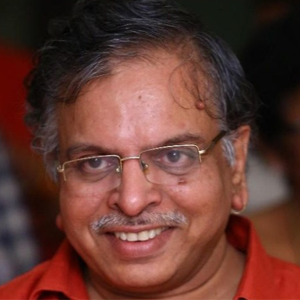
Dr. Nagaraj Paturi
Dean, INDICA
Trained in Sanskrit and Advaita Vedanta by his hyper-polyglot, polymath and spiritually accomplished sakala-shaastra-paarangata father, late Sri Paturi Sitaramanjaneyulu garu, Dr Nagaraj Paturi is seriously committed to the transmission of Vedic sciences to the present generation. In his PhD thesis (1998, University of Hyderabad), he developed an Indic Model of Myth Criticism of Literature and in his MPhil (1987, University of Hyderabad), he foregrounded Vakyapadiya as the theoretical foundation of the Ashtadhyayi. In addition to over 50 publications and about 60 conference/seminar/workshop papers, Dr Paturi has designed several courses pertaining to the contemporary applications of Vedic Sciences and has been successfully teaching them and getting them taught. Formerly Senior Professor of Cultural Studies FLAME School of Communication (& FLAME School of Liberal Education) and a Visiting Professor, University of Chicago (USA), Dr Paturi is currently Senior Director and Chief Curator at INDICA, a Distinguished Professor, Curriculum Designer, Executive Committee Member, Board of Studies, MIT School of Vedic Sciences (Pune, Maharashtra), Member, Board of Studies at Kavikulaguru Kalidasa Sanskrit University (Ramtek, Maharashtra) and Rashtram School of Public Leadership (Sonipat, Haryana). He is also the Editor-in-Chief of International Journals of Studies in Public Leadership and is a member of the Advisory Council of Veda Vijnana Shodha Samsthanam (Bengaluru, Karnataka). He has provided consultancy to numerous culture research, theatre, and dance innovation projects. He has authored scores of creative writing works for Classical Dance, Modern Theater, and magazines and has delivered several series of talks and other programs on Radio and Television channels.
Dr.Yogini Deshpande
Co-Founder & Chief Editor, IndicA Today
Dr. Yogini Deshpande is a practicing Civil Engineer by profession. She is the co-founder and Editor-in-Chief of IndicA Today. Dr Deshpande has degrees from Mumbai University & Purdue University & diverse experience in academia, research & consulting. She has been associated with Indic Academy since it’s inception & is it’s Mumbai Chapter coordinator. She is an avid reader, Indian Classical Music aficionado & keen political observer.
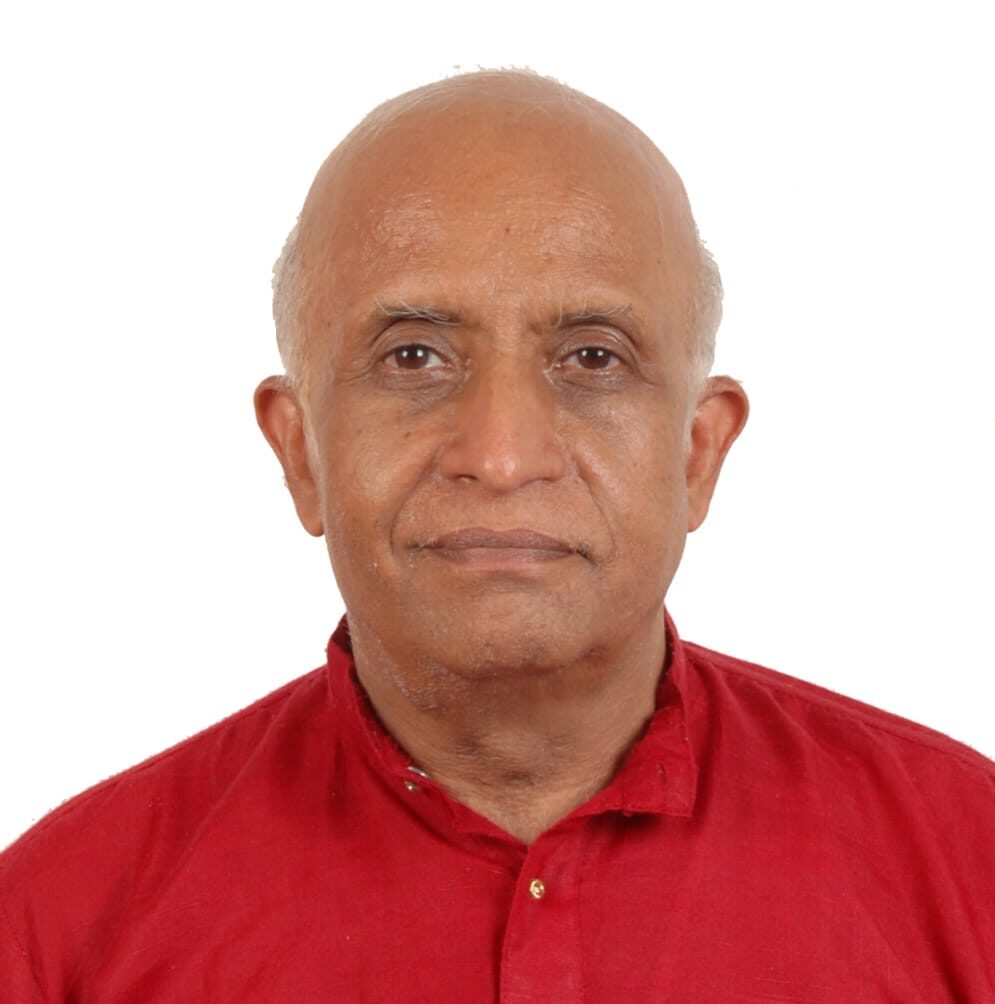
Prof. Dr. C. S. R. Prabhu
Founder Chairman of Vishwa Yoga Vidyapeeth
Dr. C. S. R. Prabhu has held prestigious positions with Government of India and various institutions. He retired as Director General of the National Informatics Centre (NIC), Ministry of Electronics and Information Technology, Government of India, New Delhi, and has worked with Tata Consultancy Services (TCS), CMC, TES and TELCO (now Tata Motors). He was also faculty for the Programs of the APO (Asian Productivity Organization). He has taught and researched at the University of Central Florida, Orlando, USA, and also had a brief stint as a Consultant to NASA. He was Chairman of the Computer Society of India (CSI), Hyderabad Chapter. He worked as an Advisor (Honorary) at KL University, Vijayawada, Andhra Pradesh, and as a Director of Research and Innovation at Keshav Memorial Institute of Technology (KMIT), Hyderabad. He received his Master's degree in Electrical Engineering with specialization in Computer Science from the Indian Institute of Technology, Bombay. He has guided many Master's and doctoral students in research areas such as Big Data. He has authored 16 books on wide range of topics from Computer Science to Yoga including the wiely acclaimed book “Dharma Yoga as a Common Framework for all Religions”. He was conferred Doctorate of Divinity by Henry Martyn Institute, Hyderabad for the above research on Dharma Yoga. He is also the Founder Chairman of Vishwa Yoga Vidyapeeth.
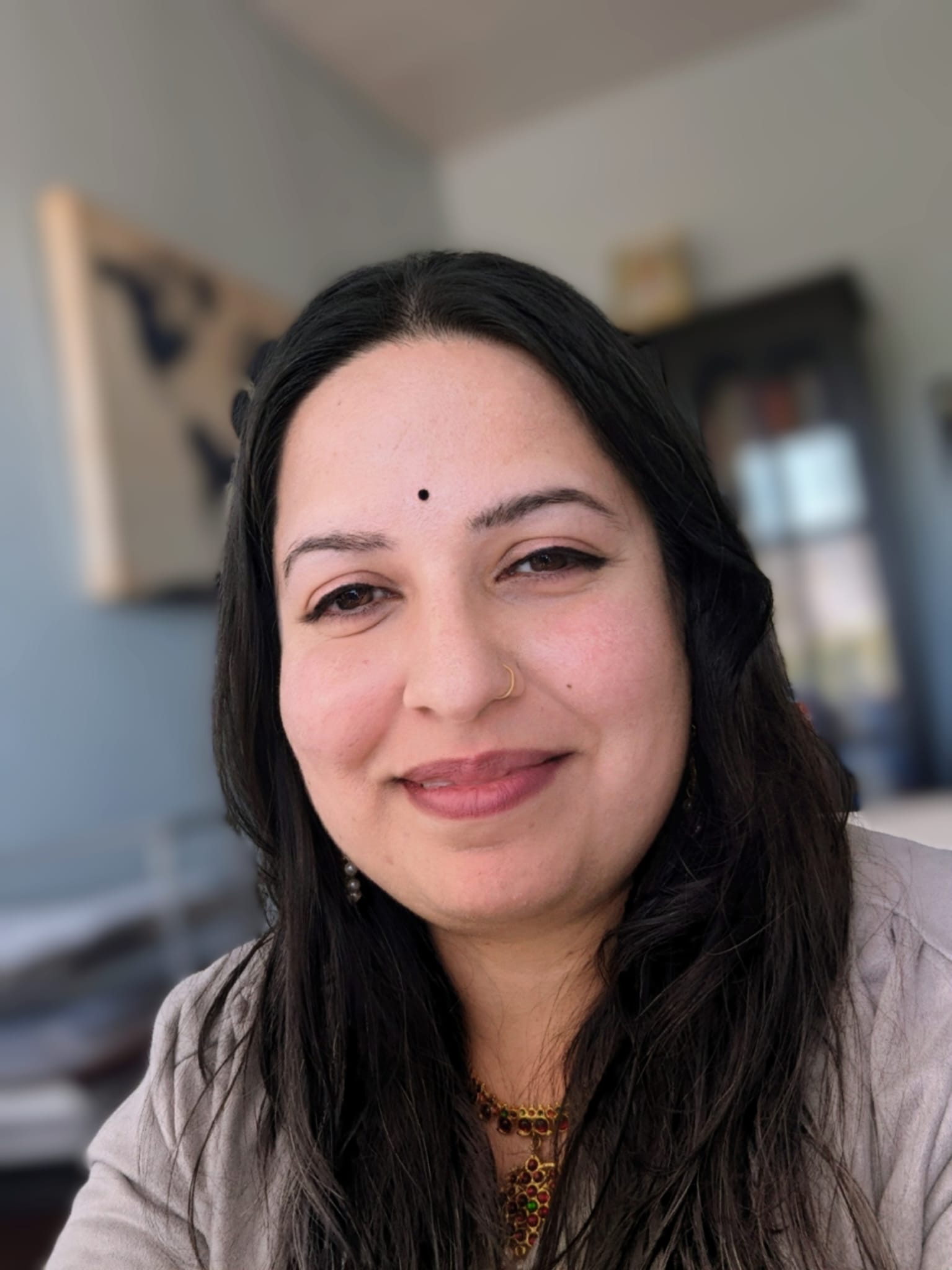
Dr. Sushumna Kannan
Scholar-in-Residence, INDICA
Dr. Sushumna Kannan has a PhD in Cultural Studies from Centre for the Study of Culture and Society, Bengaluru, India. Her research on the South Asian devotional traditions and feminist epistemology focused on the medieval saint, Akka Mahadevi and her vachanas. She received the BOURSE MIRA, French research fellowship in 2006 and 2007 and the Sir Ratan Tata fellowship for PhD Coursework and Writing in 2003 and 2007.
Dr. Kannan has published her research on bhakti, dharmashastras, ethics, women’s writing in Kannada and English as well as on translation theory in peer-reviewed journals and as book chapters. She received the Indic Academy fellowship in Indic feminism to study “Women’s subjectivity in the dharma texts” in 2021. She is currently working on a book project, Hinduism, Violence and Nonviolence and is finishing an essay on “The Mahabharata as a stri-shudra text.”
Dr. Kannan is Scholar-in-Residence at Indic Academy. She runs a podcast on Women and Hinduism for INDICA.
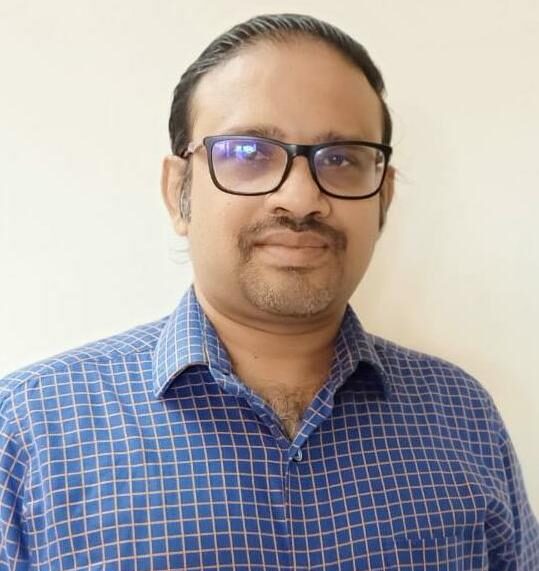
Shivakumar GV
Director - Guru-Sadhaka Sachiva, INDICA
Shivakumar G V is 'Director - INDICA (Guru-Saadhaka Sachiva). His responsibilities focus on INDICA’s critical mission to cultivate leadership. He guides initiatives to serve Gurus, perpetuate their legacies, enable/empower leaders committed to IKS to become influential thinkers, institution builders and public leaders, and bolster the broader IKS ecosystem.
Over the next 36 months, Shivakumar embarks on an ambitious pledge to honor and sustain the legacies of 108 Living and Past Gurus from the 20th Century. His efforts will focus on organizing, making accessible, and cultivating a parampara that highlights their significant contributions to our civilization.
As an IKS Research Scholar, Shivakumar remains dedicated to his scholarly pursuits in Itihasa-Puranas and Indian Knowledge Systems. His work includes developing contemporary frameworks based on IKS principles, with a special focus on the Mahabharata and Purushartha. He has been a prolific contributor to INDICA Today, sharing his insights and knowledge with both academic and general audiences. He has delivered several story telling and courses on Mahabharata, Purushartha, Indic Civilization Studies for aspiring leaders and students. He is the curator of ‘Aryaa - An Anthology of Vedic Studies’ a collection of 10 stories on 10 Vedic Women by 10 Authors published by INDICA.
Shivakumar holds an M.Tech in Computer Science from IIT Bombay and a B.E. from the National Institute of Technology, Surat. With 25 years of experience in the IT industry, his expertise spans theoretical computer science, algorithms, and learning system design. Shivakumar resides in Bengaluru with his family and is a devoted follower of the River-Goddess Saraswati.
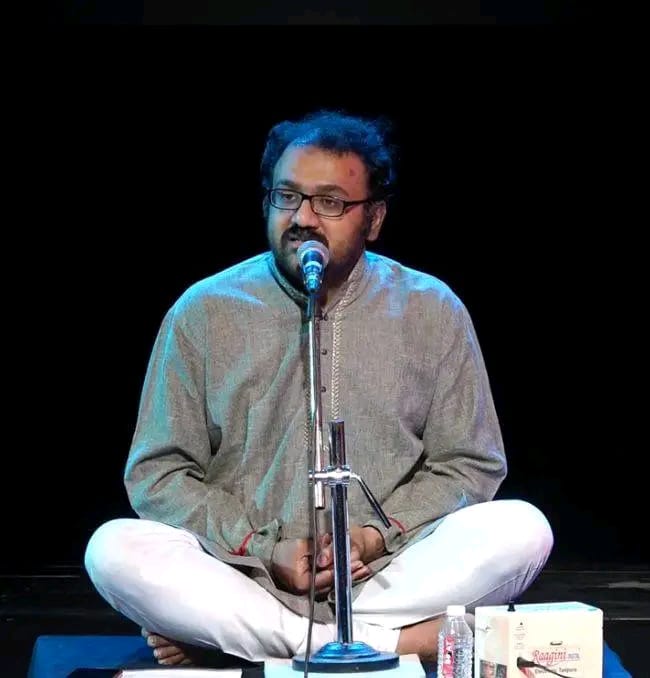
Subrahmanian Chidambaran
Chief Strategy Officer with a reputed MNC in India
Subramanian (commonly referred to as Subbu) hails from a family of Samavedic scholars in the Puthucode village of Palakkad district (Kerala). He is an electrical engineer by qualification and a postgraduate in management from IIM Lucknow. He has 15+ years of experience in management consulting & industry and is currently working as Chief strategy officer for a leading MNC in India. He has published operations & strategy case studies/ articles in leading national and international management journals and delivered lectures at IIM Lucknow (Noida), IIM Indore and VJTI (Mumbai).
He is an M.A. in Sanskrit (Specialization in Vedanta) and Diploma in Manuscriptology, both from the University of Mumbai where he has also been a visiting faculty of Vedanta, Itihasa, Puranas and Bhakti. He has formally studied Veda chanting for 8 years. He is currently pursuing his doctoral studies on ‘Indic perspectives for modern leadership’ from Chinmaya Vishwavidyapeeth. He has several papers and articles to his credit published in various national and international journals as well as presentations in various conferences & seminars.
Subbu hails from a family of music connoisseurs on his maternal side. He started his formal training in Carnatic music at the age of 13 and is currently under the tutelage of ‘Sangita Kala Acharya’ Vidushi Smt. Alamelu Mani under whom he has been learning for the past 15+ years
Subbu has been giving many lecture demonstrations and ‘Sangeeta Upanyasam’ (i.e. musical storytelling) combining his interests and skills of music and Indic knowledge. Subbu has also been hosting a channel on Youtube called ‘Subbu’s corner’ that comprises various kinds of sessions aimed at increasing awareness of our great Indic tradition and knowledge
https://youtube.com/user/bcsubbu
Website of Subramanian: https://subbuscorner.com
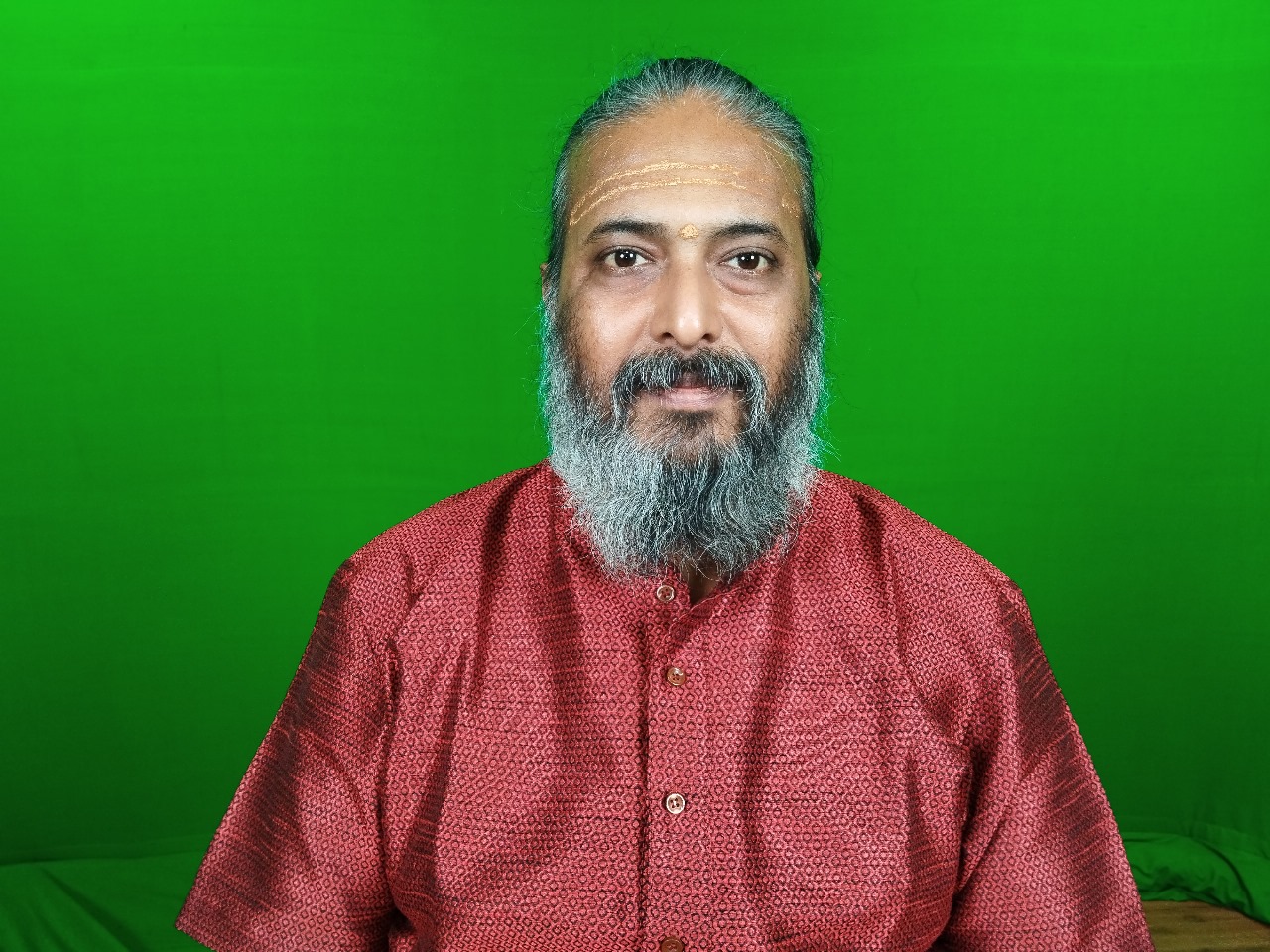
Dr. Ketu Ramachandrasekhar
Program Manager, Siddhanta Knowledge Foundation
Dr. Ketu Ramachandrasekhar has his Doctorate in Indian Epistemology and is a recipient of Prince of Wales Medal for outstanding Performance in University of Madras and was fortunate to complete his studies under to his Guru Vidya Vachaspati Brahmashri Goda Venkateshwara Shastrigal. He was selected as a Fellow for Studies in Neuro- Aesthetics and Indian Rhetorics by Ministry of Culture, GOI. He was a part of Academic Team of scholars across Europe on discussion of Natya Texts and a member of Aix-en-Provence University, France Academic Panel. He is also involved with Samskrt Theatre for the past 28 years and has acted in many plays produced by Samskrta Ranga founded by Dr V. Raghavan. His knowledge in Shaiva Pratyabhijna School is well recognised by scholars of Kashmir Shaivism and he has been a regular contributor to their Journals on the works and contributions of Acharya Abhinavagupta. He has attended several national and International Conferences. He has several research articles and books to his credit which includes a detailed study of Abhinayadarpana of Nandikeshvara, Independent commentary on Devi Mahatmya, translation of Majma-ul-bahrain of Dara Shikoh and others. His advice is also sought in matters relating to prayoga aspect of Tantra Shastra by established centers of Shakti worship. He owes all his achievements to his Guru Vidya Vacaspati Brahmashri Goda Venkateshwara Shastrigal.
P.P. Dr. Shri Shamsundar Deshpande Maharaj
P. P. Dr. Shri Shamsundar Deshpande Maharaj is a qualified civil engineer with a PhD in Civil Engineering from IIT Mumbai. Since his chidlhood he was interested in Sanatan rituals and kulachara rituals. In his youth his interests veared towards worship of Shri Dattatreya. In his 30s he regularly conducted Gurucharitra Parayan and observed strong spiritual growth and personal development because of the recitation with observations of strict rituals as laid down. In 1984 he got initiated in the Kundalini Shaktipata marg under the guidance of P. P. Shri Narayan Kaka Dekhane Maharaj through sankalp deeksha. In later years P. P. Shri Dekhane Maharaj gave deeksha adhikar to him. Eventually in 1993 P.P. Deshpande Maharaj set up an Ashram in Thane and since then been engaged in marga prachar.
Dr. Jammalamadaka Srinivas
Director, School of Shastric Learning, Kavikulaguru Kalidas Sanskrit University, Ramtek
Srinivas Jammalamadaka studied Nyaya/Tarka Shastra under Sri. Ambadipudi Radhe Shyama Shastri, Advaita Vedanta under Sri. R. Mani David's Sastrigal, and Vyakarana under Sri. Ganti Dattatreya Murthy. He has completed the Tenali exams in Tarka Shastra and appeared for the Tenali exams in Advaita Vedanta. He has completed MPhil & PhD in Nyaya shastra. He is presently the Assistant Professor at the School of Shastric Learning, Kavikulaguru Kalidas Sanskrit University, Ramtek. He has been conferred awards such as - Tarka-Ratnam & Vidwan Mani by Sri Kanchi Shankaracharya, Shastrakalanidhi by Madhya Pradesh State Governor.
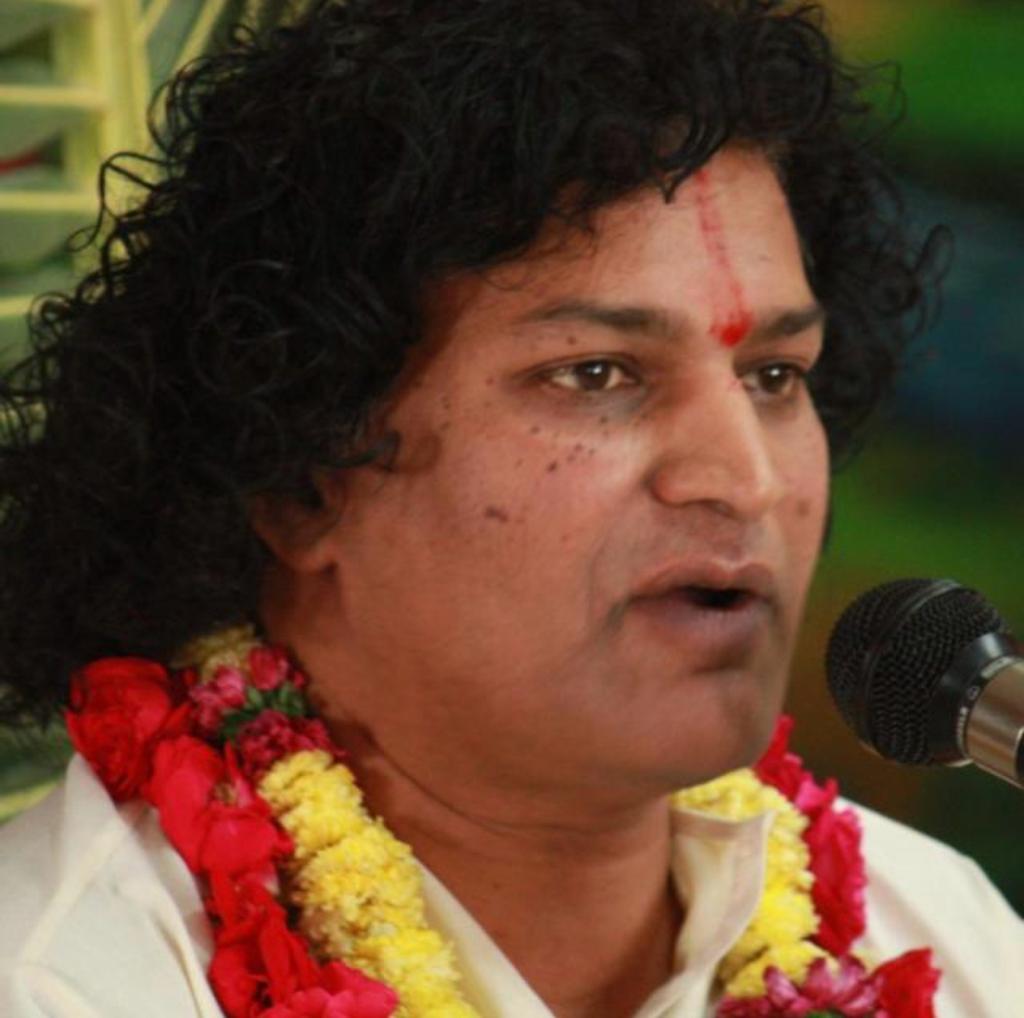
Dr. Srinivasa Acharya Bellamkonda
Founder, Gauranga Vedanta Arts and Life Academy
Srinivasa Acharya Bellamkonda, a distinguished teacher of Rasopasana, pursued his graduation in Civil Engineering and completed his Master’s degree in Theatre Arts. His spiritual quest took him to Brindavan, which motivated him to take up the topic of Bhakti Rasa as a topic of his Ph.D thesis. In this pursuit he studied the basics of various schools of traditional Indian philosophies such as Poorva Mimamsa, Advaita Vedanta, Vishistadvaita Vedanta, Dvaita, Vedanta, and Gaudiya Vaishnava Vedanta. His academic journey culminated in a Ph.D. in Theatre Arts from Hyderabad Central University, where his dissertation explored the presentation of Self and Self fulfilment in Drama, Natya, and Lila.
Based on his vast study of Natya Shastra, Bhakti Vedanta and the poetic literature of the rasik saints of Brindavan, and even modern psychology, Dr. Srinivasa Acharya developed a unique method of sadhana called Rasopasana. For the past fifteen years he has been conducting workshops and classes in Rasopasana, online and offline to both Indian and International seekers. He also disseminates the knowledge of Rasopasana in the form of systematic lessons through his YouTube channel Srinivasa Acharya Bellamkonda @ rassickacharya. With an aim to spread Rasopasana across the world he also started training teachers.
Srinivasa Acharya is also a dedicated philanthropist, serving as the Founder Trustee of a public charitable Trust by name Gauranga Vedanta Arts and Live Academy. Through this charitable trust, he has championed self-empowerment classes, workshops, and Rasopasana advocacy. His commitment extends to social causes, notably cow conservation, fostering community engagement.
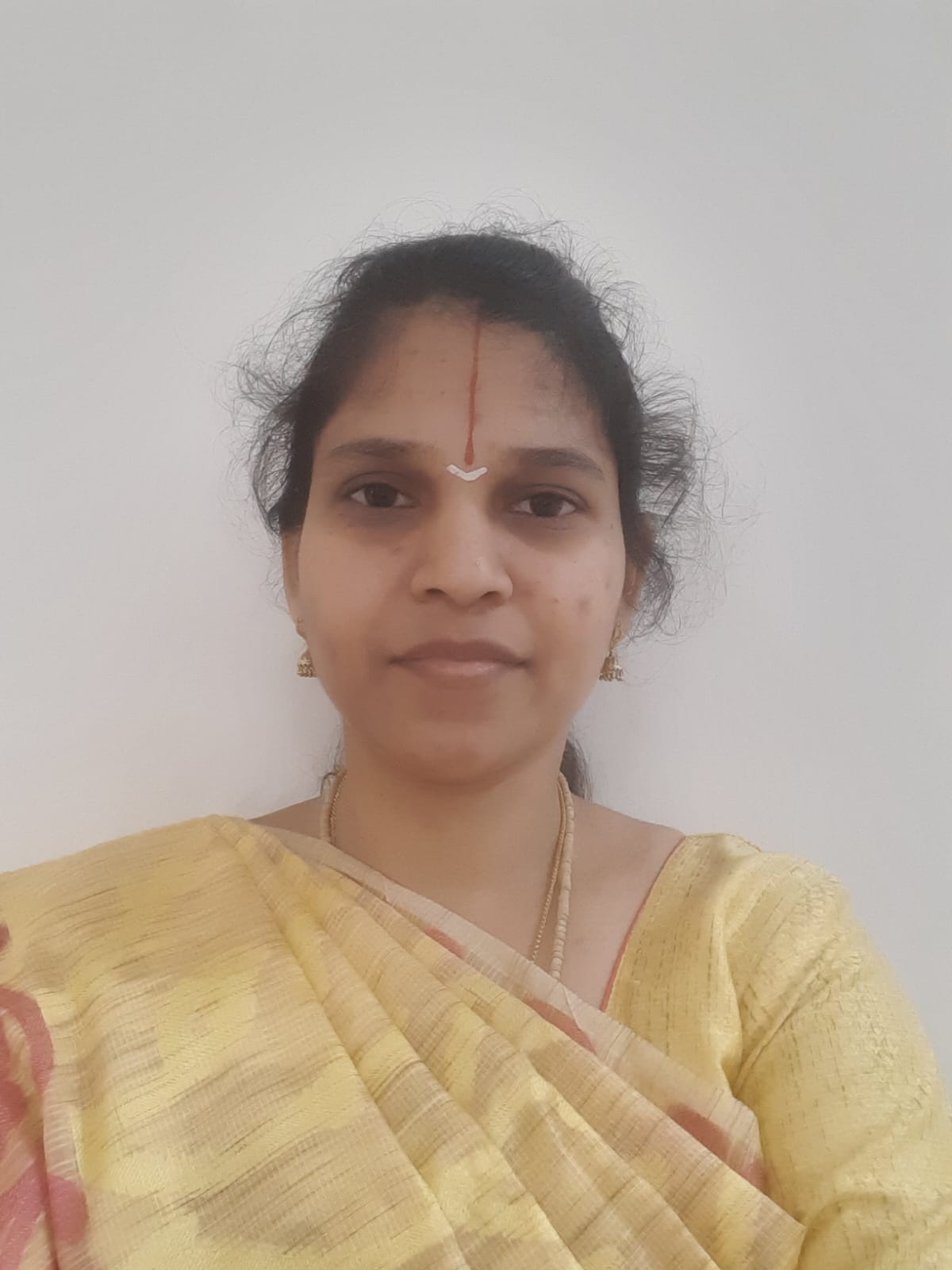
Smt. Amara Sarada Deepthi
Director, Eduact Innovation Labs, Co-Author & Content Strategist for Thavaasmi, Manasvi and Thapasvi
This co-author of "Thavaasmi" passionately advocates for the holistic nourishment of children, emphasizing the importance of psychological as well as physiological well-being. Through her dedicated efforts alongside the author, "Thavaasmi" was meticulously crafted into a masterpiece, characterized by its structure, elegance, and reliability. Serving as both co-author and content Strategist of "Thavaasmi," she brings a wealth of expertise in Ramayana, enriching the text with profound insights.
Continuing this noble journey, her team has introduced two exceptional publications: "Manasvi: The Art of Mind Management through Sundarakaanda" and "Thapasvi: AmaZing Choices of Life." These works delve deep into the essence of the Ramayana, offering practical wisdom and invaluable life skills to readers of all ages.
She epitomizes the notion of "I'M POSSIBLE," having secured admission to one of the country's premier institutions, BITS Pilani, despite hailing from a Government school background. Opting to prioritize her family over a lucrative VLSI career, she transitioned from a passionate homemaker in the Netherlands to a revered figure in the domain of Personality Development, mentoring aspirants of all ages worldwide. Her unwavering aspiration to nurture children into patriotic leaders is the driving force behind her life's work, a testament to her dedication and conviction.
Sri Prabhav Paturi
Vedic Psychologist and Cross Cultural Researcher @ Manoloka Holistic Wellness
Holds MSc in Counseling Psychology from BR Ambedkar Uni, Hyd and PG Diploma in Clinical Psychology from School of Achology, Scotland.
Taught Modern Psychology to BA Integral Psychology students at MIT ADT uni.
Offered Health Psychology Counseling at Apollo Hospitals and St. Judes Pediatric Oncology Wing.
Translated J Sai Deepak's India That is Bharat into Telugu. Published 2 cross cultural psychology research papers.
Trained in Indic Knowledge Systems by his grandfather and father, in Yoga by Narasimha Rao Garu and in Tantra by Shri Vidurendranatha Saraswati.
Does field work based studies in Telangana folk culture from cross cultural perspective.
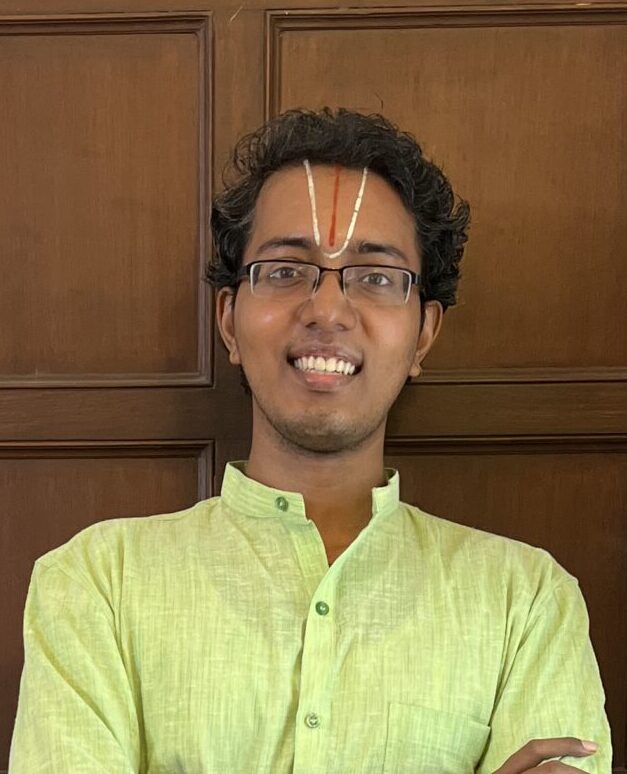
Abhinav Kadambi is a seventh generation paternal descendent of yogi śrī. Maddibande
Ramadhyani Kadambi Srinivasa Tatachar svāmī of Tumkur and is the dauhitra of mahāmahopādhyāya patrakāraśiromaṇi freedom fighter, linguist, Sahitya Akademi award winning author, and translator śrī. Dr. Tirumala Ramachandra svāmī. After a B.Tech. in bioengineering and an M.Tech. in medical nanotechnology, he has had international experience in STEM research (biomedical device design and fabrication, animal cognition and behaviour, and cognitive neurosciences) and science journalism. He has completed an MA (Sanskrit) from the University of Madras, Chennai. He has studied the basics of saṃskṛtam as a student of śrī. Dr. O. R. Devanathan svāmī (Oozhapaakkam Devanathachar svāmī), Head of the Department, PG and Research Department of Sanskrit, Presidency College (Autonomous), Chennai. He is a traditional nyāyaśāstra student of nyāyaratna nyāyaśiromaṇi śrī. Dr. Jammalamadaka Suryanarayana Shastri ji. He is a student practitioner of yogaśāstra in the tradition of Yogacharya śrī. Tirumalai Krishnamacharya svāmī. He currently is a PhD research scholar in Sanskrit under the guidance of śrī. Dr. O. R. Devanathan svāmī at the University of Madras, Chennai. Apart from teaching of and research in saṃskṛtam, yoga, and indigenous approaches to Indology, he also transcribes manuscripts (for example, śrīhiraṇyagarbhasaṃhitā in pāñcarātrāgama) and translates from and to saṃskṛtam. He belongs to the parakālamaṭha (śiṣya of śrī. Abhinavavāgīśabrahmatantrasvatantraparakālamahādeśikan svāmī) and is associated with śrī Parāṅkuśa svāmī maṭha at Surpur (near Yadgir), Karnataka. He works with teaching/research responsibilities with multiple organisations including Kameswari Foundation, Kalasadhanalaya, Krishnamacharya Healing and Yoga Foundation, and Bhartiya Fitness Academy. He also volunteers for Vivekananda Kendra, Chennai.

